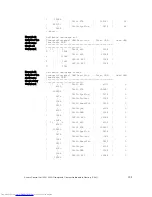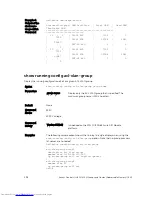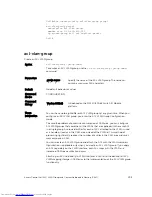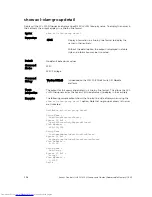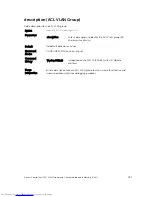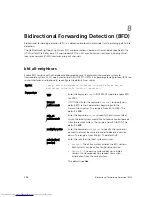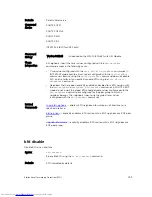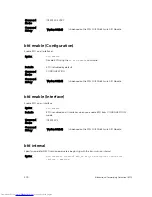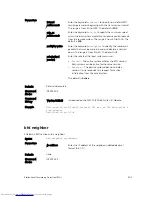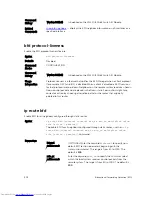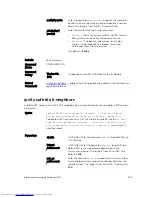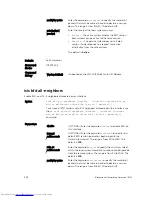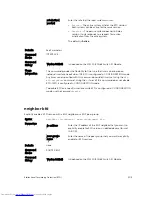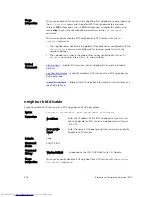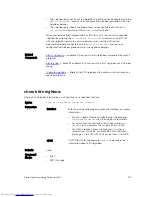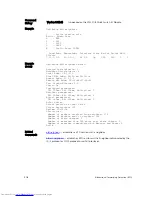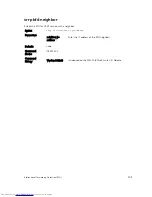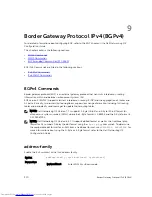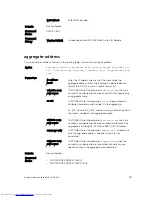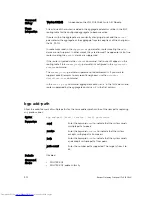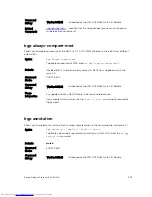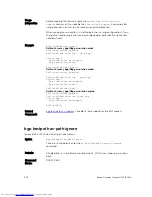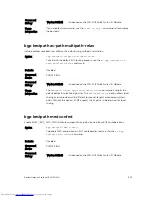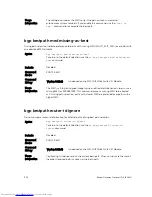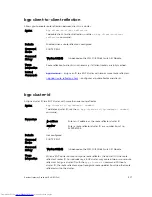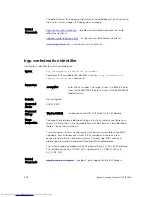
multiplier
value
Enter the keywords
multiplier
to specify the number of
packets that must be missed in order to declare a session
down. The range is from 3 to 50. The default is
3
.
role [active |
passive]
Enter the role that the local system assumes:
•
Active
— The active system initiates the BFD session.
Both systems can be active for the same session.
•
Passive
— The passive system does not initiate a
session. It only responds to a request for session
initialization from the active system.
The default is
Active
.
Defaults
See Parameters
Command
Modes
CONFIGURATION
Command
History
Version 9.2.
(0.0)
Introduced on the MXL 10/40GbE Switch IO Module.
Related
Commands
show bfd neighbors
— displays the BFD neighbor information on all interfaces or a
specified interface.
ipv6 ospf bfd all-neighbors
Establish BFD sessions with all OSPFv3 neighbors on a single interface or use non-default BFD session
parameters.
Syntax
ipv6 ospf bfd all-neighbors [disable | [interval
interval
min_rx
min_rx
multiplier
value
role {active | passive}]]
To disable all BFD sessions on an OSPFv3 interface implicitly, use the
no ipv6
ospf bfd all-neighbors [disable | [
interval
interval min_rx
min_rx
multiplier
value
role {active | passive}]]
command in
interface mode..
Parameters
disable
(OPTIONAL) Enter the keyword
disable
to disable BFD on
this interface.
interval
milliseconds
(OPTIONAL) Enter the keyword
interval
to specify non-
default BFD session parameters beginning with the
transmission interval. The range is from 50 to 1000. The
default is
100
.
min_rx
milliseconds
Enter the keywords
min_rx
to specify the minimum rate at
which the local system receives control packets from the
remote system. The range is from 50 to 100. The default is
100
.
Bidirectional Forwarding Detection (BFD)
303





